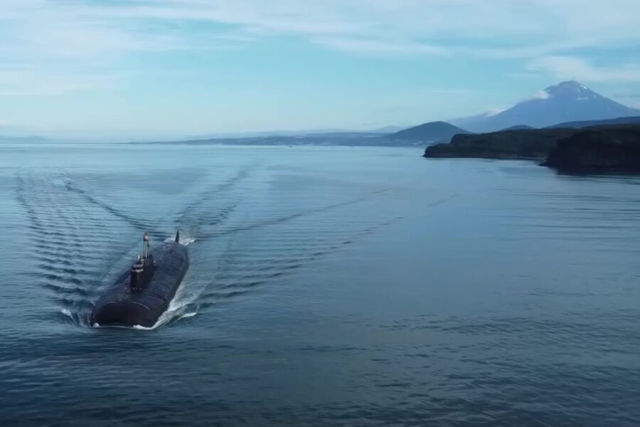Newsweek: NATO fears Russia's submarine fleet because of its ability to destroy Internet cables NATO is seriously concerned about Russia's increasing capabilities of its submarine fleet, writes Newsweek.
The West believes that Moscow can use submarines to attack critical infrastructure - Internet cables, pipelines, and other communications on the seabed. According to experts, Russia's capabilities in this area give it an "asymmetric advantage".
NATO is increasingly wary of the Russian submarine fleet because of its potential to destroy and damage critical infrastructure - for example, underwater Internet cables, pipelines. This is reported by the American magazine Newsweek, referring to the conclusions of analysts.
The Russian Navy has one of the most multifunctional submarine fleets in the world, Newsweek continues. According to experts interviewed by the publication, in the unlikely event of a full-scale world war, Russian submarines with nuclear weapons will be able to carry out general nuclear deterrence, and ships equipped with conventional weapons will be used to counter the enemy in other areas.
Michael Peterson, director of RMSI, an American research center that studies Russia's military capabilities at sea, said that potential attacks on underwater critical infrastructure around the world pose a very serious and justified threat.
"Russia has been significantly developing its means of warfare on the seabed for at least ten years. Most of them are in the so-called GUGI, that is, in the Main Directorate of Deep-sea Research of the Russian Ministry of Defense (engaged in the preparation of underwater special forces of the Navy. - "Gazeta.Ru")," Peterson said.
According to him, the elite of the Navy, sailors who perform the most complex and important tasks for the national security of Russia, serve in this department. Peterson said that in the arsenal of GUGI there is, for example, a one-of-a-kind nuclear submarine "Belgorod", which is the carrier of Poseidon sea drones - underwater nuclear torpedoes with an atomic power plant.
A number of other submarines, Peterson added, are capable of placing either listening devices or explosives on objects such as deep-sea cables on the ocean floor. GOOGLE has every opportunity to conduct espionage, manage escalation, or simply wage war with high damage to the enemy, the expert is sure.
And underwater cables, as Peterson explains, are extremely difficult to protect. "Since Russia has advanced combat capabilities for conducting deep-sea operations, this gives Moscow an asymmetric advantage," he said.
Another expert in an interview with Newsweek, professor of the Norwegian Defense Academy Njord Wegge, said that Norway has significantly increased patrols in the North Sea. He explained this by the incident with the "Nord Streams" in September last year - after it, Oslo fears for its own pipelines. (A recent investigation by American journalist Seymour Hersh states that Norway, together with the United States, developed and carried out the undermining of the "Northern Streams". - "Newspaper.Ru").
Peterson from RMSI, talking about a potential direct military conflict between Russia and NATO, expressed the opinion that the main theater of hostilities will unfold on land. However, he recalls that the military doctrine of the Russian Federation implies inflicting the greatest strategic damage to the enemy. And the use of the submarine fleet here gives Moscow an advantage.
Peterson said that sabotage at critical infrastructure facilities is a relatively new type of military activity. And this is one of those areas in which Russia feels its advantage. As an example, the analyst cites Moscow's actions during a special military operation - strikes on stationary infrastructure facilities in Ukraine using aviation and fleet have proven their effectiveness.
"The war in Ukraine has confirmed the Navy's ability to carry out an important part of Russia's military strategy and has shown that the navy is a very capable force, despite the loss of some ships," the expert explained.
In conclusion, Peterson argues that the level of danger of Russian submarines is now as great as during the Cold War. "We have reason to believe that Russian nuclear submarines are deployed in such a way as to control the coast of the United States, the Mediterranean and other peripheral areas of Europe. Such actions were typical for the Soviet submarine fleet during the Cold War," the analyst concluded.
Mikhail Kotlyar

